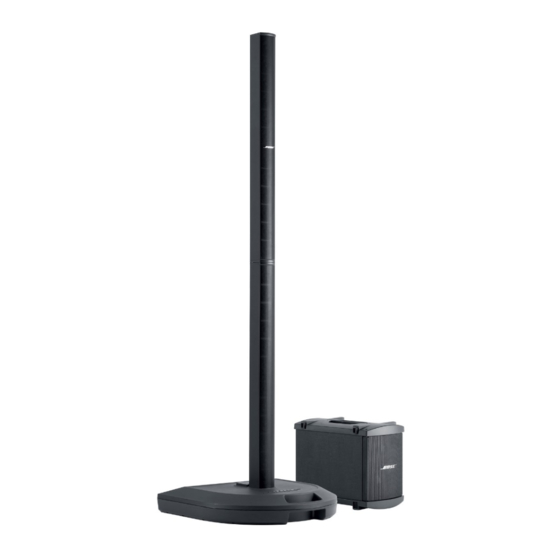Bose Personalized Amplification System Panduan Pemecahan Masalah - Halaman 8
Jelajahi secara online atau unduh pdf Panduan Pemecahan Masalah untuk Penguat Bose Personalized Amplification System. Bose Personalized Amplification System 50 halaman.
Juga untuk Bose Personalized Amplification System: Panduan Pemilik (28 halaman)

110V AC is changed to about 300V DC, after passing through the EMI filter and the Diode
Bridge. Then, the voltage signal is divided two ways: one DC voltage goes through the switch
control & auxiliary circuit1 again, enters into the transformer primary1. The transformer1 has five
secondary windings, the first outputs +24V DC (for the input panel), the second outputs +15V
DC (for A/D, D/A buffer circuit), the third outputs –15V DC (for A/D, D/A buffer circuit), the fourth
outputs +5V DC (for MCU and other ICs), the fifth outputs +3.3V DC (for DSP, A/D & D/A IC).
Another DC voltage goes through the switch control & auxiliary circuit2 and enters into trans-
former primary2. The transformer1 has two secondary, the first outputs -27V DC (for AMP), the
second outputs +27V DC (for AMP).
Operation of the all voltage switching regulator is more complicated. The load of +3.3V is the
heaviest, so we get this +3.3V as feedback a signal and send it to the switch control & auxiliary
circuit1. When the system works, if +3.3V happens to waver, switch control & auxiliary circuit1
will change 'open' and 'close' time of switch circuit to regulate the transformer primary1, accord-
ingly, the voltage of transformer1 secondary will keep stable. Of course, in this way, the effect of
stabilization for +3.3V is best, and that for other voltage is worse.
The regulation of the power supply for AMP is like this: we get the +27V as feedback signal and
send it to switch control & auxiliary circuit2. When system works, if +27V happens to waver,
switch control & auxiliary circuit2 will change 'open' and 'close' time of switch circuit to regulate
the transformer primary2, accordingly, the voltage of transformer2 secondary will keep stable.
When the system works, +5V can supply 100mA to MCU PCB, +3.3V can supply 260mA to
DSP PCB, +15V can supply 200mA to DSP PCB, -15V can supply 150mA to DSP PCB, and the
+24V can supply 50mA to the Input Panel PCB.
Microcontroller
A microcontroller on the MCU PCB is used for the following control functions:
•
Relay DSP information to Remote
•
Relay Remote information to DSP
•
Control channel volume IC
•
Check channel preset switch
•
Check bass send state
•
Check power & amplification protection
•
Check the number of bass speaker
•
Indicate current system working status with a three color LED
These functions are explained in detail on the next page.
THEORY OF OPERATION
8
